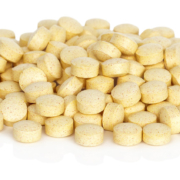Food Is Better Than Supplements, But …
Getting your nutrients from food by eating a healthy diet is the most desirable way of getting vitamins, minerals, and phytonutrients. Period. If we could all do it, no question that’s the best way. But you and I don’t live in some fantasy world. We’re busy. We don’t always have enough time to shop and cook healthy meals. Dietary supplements have helped fill the nutrition gap.
What should we think about this latest research? Should we stop taking supplements, especially calcium? Before I give you my opinion, I want to tell you that I emailed the corresponding author of the paper, a brilliant woman and a talented researcher. I had two questions about the study. She answered me the same evening—Saturday night before Easter. That I got such quick reply was remarkable; I’m still waiting for answers from other researchers I contacted months ago.
The first question I asked was a basic one: what was the mortality rate of the subjects in the study compared with the national cancer mortality rate? The national mortality rate is 156 deaths per 100,000 people per year. That works out to 1.6 people per 1,000. The rate in the study was about 3 people per 1,000. She replied that the study results are not directly comparable for complicated reasons.
But here’s something that can be directly compared. A 62% increase in cancer mortality would be transferable to national statistics because that’s the idea: to generalize to the entire population. A 62% increase means that 2.5 people per 1,000 would die from cancer in a given year instead of 1.6. When applied to the entire population that could be a lot of people, but it applies only to those who took over 1,000 mg of calcium per day.
The other question I asked was whether they had data on how long the people were taking the supplements; NHANES asked about the 30 days prior and recorded the prior 24 hours. How long were they taking the supplements? Weeks? Months? Years? Decades? That might have made some difference. The data were collected in the questionnaires used for two of the cycles that I examined, but that data was not used in the analysis.
The Bottom Line
I think we should eat the best diet we can. I also think we should use quality dietary supplements to complement our diet. This study was an exercise in statistics more than nutrition. It can tell us the statistical outcomes of the people in the study, but it can’t really be used to tell us anything about what we should do as individuals.
Not every person who took a higher amount of calcium died from cancer. On top of that, if supplementation did have a significant negative impact on our health, it stands to reason there would have been more negative results than just for calcium. Because the research questions were fitted to the available data, there’s just too much we don’t know about factors that can influence the results.
Another good question the study didn’t ask is why people were taking calcium. For instance, a woman with osteoporosis may take calcium for better bone health. Did those women have fewer broken bones with supplementation? If so, that might be worth any higher risk that exists. As with any nutritional intervention, it’s important to weigh the pros and cons. If you’re concerned, talk to your healthcare professional about what you should do; they know you and your health status and can help you make the right choices.
Supplement confusion is a good reason to get a copy of my new CD Supplementing Your Diet. Check out why at drchet.com.
What are you prepared to do today?
Dr. Chet
Reference: Ann Intern Med. doi:10.7326/M18-2478.









